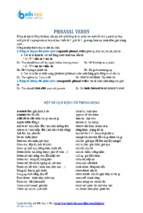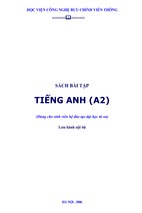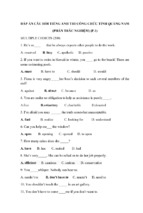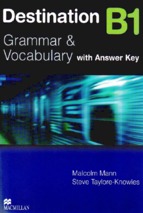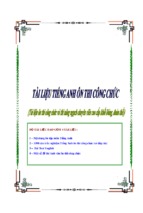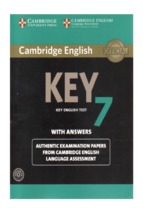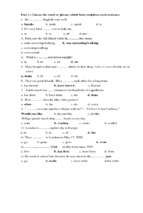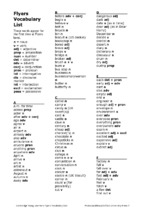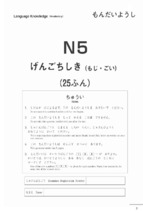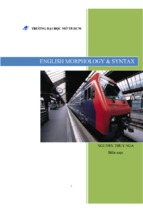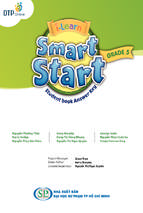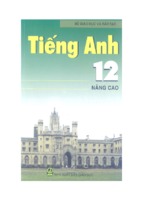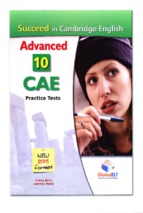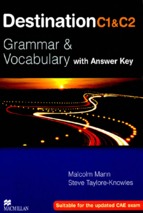Page |1
www.EspressoEnglish.net
Page |2
Table of Contents
Introduction
12
a / an / one
13
able / capable
13
accident / incident
14
accurate / exact / precise
15
ache / pain / hurt
16
actual / current / present
17
administrator / boss / manager
18
adverse / averse
19
advice / advise
19
affect / effect
20
afraid / scared / frightened
20
after / later
21
agenda / itinerary / schedule
21
ago / back / before
22
aid / assist / help
23
aim / goal / objective
24
alien / foreigner / stranger
25
alive / life / live
26
already / yet
27
all / whole / every
27
all of / each of
29
all ready / already / all right / alright
30
allow / let / permit
30
www.EspressoEnglish.net
Page |3
allude / elude
31
almost / mostly / nearly
32
alone / lonely / only
33
also / as well / too
33
altar / alter
35
although / though / even though
36
among / between
36
amoral / immoral
37
amount / number / quantity
38
ancient / antique
38
angry / upset
39
another / other / others
40
answer / reply / respond
41
any / some
41
apartment / flat / studio
42
apologize / sorry
43
apology / excuse
43
appraise / apprise
44
arrive / come / get / reach
44
as far as / as long as / as soon as
45
assure / ensure / insure
46
automobile / car / vehicle
46
await / hope / expect / wait
47
award / reward / prize
48
awkward / embarrassing
49
baggage / luggage
49
beach / coast / shore
50
www.EspressoEnglish.net
Page |4
beautiful / pretty
51
become / get / turn
52
been / gone
53
before / in front of / opposite / across from
54
beg / plead
55
begin / start
56
belong to / belong with / belong in
56
below / under / beneath / underneath
57
beside / besides
58
big / large
58
big, small, long, short, tall, huge, and tiny
59
bill / invoice / receipt
60
blanket / comforter / quilt
61
borrow / lend / loan / owe
62
bother / disturb
64
bravery / courage
64
bring / take
65
bring up / grow up
65
Britain / England / the U.K.
66
broad / wide
67
by / until
67
can / could / able to
68
capital / capitol
70
carpet / mat / rug
70
ceiling / roof
71
chance / possibility / opportunity
72
change / switch
72
www.EspressoEnglish.net
Page |5
chauffeur / driver
73
city / downtown / town
73
classic / classical
74
clever / intelligent / smart
75
close / near / next
75
close / shut
76
cloth / clothes / clothing
77
collect / gather
77
come back / go back / get back
78
compliment / complement
79
concern / concerned / concerning
80
confident / confidant / confidence
81
continual / continuous
82
convince / persuade
82
could / should / would
83
council / counsel
85
critic / critical / criticism / critique
86
cure / treat / heal / recover
86
custom / habit
87
deadly / fatal / lethal
88
decent / descent / dissent
88
delay / late / postpone
89
deny / refuse / reject / decline
90
defect / fault / flaw
91
definitely / definitively
92
despite / in spite of
92
die / died / dead
93
www.EspressoEnglish.net
Page |6
difficult / hard
94
dilemma / quandary
94
dinner / supper / meal / snack
95
dirt / earth / soil
95
dirty / messy
96
disability / handicap / impairment
96
discover / find out / notice / realize
97
discreet / discrete
98
disease / illness
98
disinterested / uninterested
99
distinct / distinctive
100
do / make
101
dress / dressed / wear
101
during / while / meanwhile / meantime
103
early / soon
104
earn / gain / win
105
e.g. / i.e.
105
economic / economical
106
effective / efficient
107
either / neither
107
electric / electrical / electronic
108
empathy / sympathy
109
employees / staff
110
end / finish
110
enough / too
111
enquire / inquire
112
especially / specially
112
www.EspressoEnglish.net
Page |7
every day / everyday
113
ex- / former / previous
113
explore / exploit
114
extend / expand
114
famous / infamous
115
farther / further
115
fee / fare / tax
116
female / feminine / woman
117
few / little / less / fewer
118
fit / match / suit
119
floor / ground
120
for / since
121
forest / jungle / wood / woods
122
fun / funny
123
girl / lady / woman
123
good / well
124
good evening / good night
124
gratuity / tip
125
guarantee / warranty
125
gut / guts
126
hard / hardly
126
have / have got
127
have to / must / need to
128
haven’t / don’t have
129
hear / listen
130
hijack / kidnap
130
historic / historical
131
www.EspressoEnglish.net
Page |8
holiday / vacation
131
hope / wish
132
hopefully / thankfully
133
hostel / hotel / motel
134
house / home
134
how about…? / what about…?
135
human / humankind / human being / man /
mankind
136
hundred / hundreds
137
I / my / me / mine / myself ?
137
if I was… / if I were...
139
if / whether
140
ignore / neglect
140
ill / sick
141
impending / pending
142
imply / infer
143
in / into / inside / within
143
in / on / at
145
in time / on time
146
incite / insight
147
income / salary / wage
148
Indian / indigenous / Native American
148
inhabit / live / reside
149
intend / tend
149
interested / interesting
150
interfere / intervene
151
its / it's
151
www.EspressoEnglish.net
Page |9
job / work / career
152
just / only
153
kinds / types / sorts
155
know / meet
155
last / latest
156
last / past
156
late / lately
157
lay / lie
158
like / as
159
little / small
160
look / see / watch
160
lose / loose
161
lose / miss
162
made of / made from
162
marriage / married / wedding
163
may / might
164
moral / morale
165
Mr. / Mrs. / Ms. / Miss
166
music / song
166
nausea / nauseous / queasy
166
north / northern
167
notable / noticeable
168
ocean / sea / lake / pond
168
of / from
169
oppress / suppress / repress
169
overtake / take over
171
pass away / pass out
171
www.EspressoEnglish.net
P a g e | 10
pass the time / spend time
172
peak / pique
172
persons / peoples
173
poison / venom
173
politics / policy
174
poor / pore / pour
174
pray / prey
175
principal / principle
176
problem / trouble
176
quiet / silent
177
raise / rise / arise
178
regard / regardless / regards
178
regretful / regrettable
179
relation / relationship
180
remember / remind / recall / recollect
181
replace / substitute
181
resolve / solve
182
review / revise
183
rob / thief / steal
184
safety / security
185
sell / sale
186
say / tell / speak
186
scream / shout
188
sensible / sensitive
188
shade / shadow
188
so / such
189
so / very / a lot
190
www.EspressoEnglish.net
P a g e | 11
some time / sometime / sometimes
192
stuff / things
192
such as / as such
194
suppose / supposed to
194
than / then
195
think about / think of
196
tide / waves
196
till / until
197
to / for
197
too / very
198
travel / trip / journey
199
used to / be used to
200
wake / awake / sleep / asleep
201
wander / wonder
202
wary / weary
203
what / which
203
which / that
204
who / whom
204
will / would
206
worse / worst
207
year-old / years old
208
More English Courses & E-Books
209
www.EspressoEnglish.net
P a g e | 12
Introduction
The English language has an enormous vocabulary, and this results in many words
that are very similar. Some of them are different by just one letter, like moral and
morale. Others differ in their spelling and pronunciation, like incite and insight.
There are many pairs of words that appear to mean the same thing – such as
historic and historical, or definitely and definitively – but actually have different
definitions and uses.
It can be very confusing for you as an English learner!
You want to speak correctly and avoid miscommunications, but you’re not quite
sure about the exact meaning and use of each word. Some students even avoid using
particular words because of their doubts.
This book aims to clarify more than 600 of the most common confusing words in
English. Every entry has various example sentences s that you can see how each
word is normally used.
To learn the most from this book, I would suggest trying to write your own example
sentences after reading each entry. This will help establish the meaning of the words
firmly in your mind, so that you won’t forget them.
If you have any questions, please feel free to e-mail me at
[email protected]
– I’m happy to help you further!
Best wishes,
Shayna Oliveira
Teacher, EspressoEnglish.net
www.EspressoEnglish.net
P a g e | 13
a / an / one
Use one when the number is important; when you want to emphasize that it is only
one (and not two or three or more):
One of these eggs is rotten, but the others are OK.
I wanted to buy three CDs, but I didn’t have enough money, so I bought only
one.
In all other cases, when the fact of being “one” is not important, use a / an:
I had an omelet for breakfast.
I bought a new CD yesterday.
What about the difference between a and an? We use an before words beginning
with a vowel sound, and a before all other words:
an apple / a banana
an ice cream cone / a piece of cake
an egg / a carrot
an omelet / a steak
an umbrella / a uniform
(because “uniform” is pronounced yuniform)
an hour / a hat
(we use an with hour because the H in hour is silent, but the H in hat is not)
able / capable
The difference between these words is extremely small – but usually we use able to
describe current things someone can do, and capable to talk about someone’s
future potential. It is not a strict rule, just a general tendency.
She’s able to play a song perfectly after hearing it only once.
(she can currently do this)
She’s capable of becoming a successful musician.
(she has the possibility of doing this in the future)
www.EspressoEnglish.net
P a g e | 14
This technology has the ability to grow crops in the desert.
(it can currently do this)
This technology has the capability to end world hunger.
(it has the possibility of doing this in the future)
The opposite of able is unable, and the opposite of capable is incapable.
The disease made him unable to move without pain.
(he currently cannot move without pain)
The treatments are incapable of curing the disease.
(there is no possibility of curing the disease with the treatments)
Note that we say able to, but capable of:
The martial artist is able to break a concrete block with his bare hands.
Good thing he’s very calm – I don’t think he’s capable of violence.
accident / incident
You may hear the words accident and incident to refer to events in the news. These
words are easy to confuse, but they are not exactly the same! Incident is more
general, and accident is more specific.
Incident can refer to any event - big or small, good or bad, intentional or
unintentional. A bank robbery, a funny or controversial situation, an argument
between celebrities, etc. - all can be described as incidents.
An accident is a bad event caused by error or by chance. Accidents are always
unintentional, and they usually result in some damage or injury. A car crash is one
example of an accident. If some equipment malfunctions in a factory and injures the
workers, that is also an accident. Examples of very minor accidents are when you
step on someone's foot or spill your coffee on someone else. You didn't want or plan
to do it.
All accidents can ALSO be described as incidents – but not all incidents are
accidents.
www.EspressoEnglish.net
P a g e | 15
If a drunk driver runs his car into a group of people, that is an accident (he did not
intend to do it; it was caused by alcohol and by chance). It could also be described as
an incident ("The incident occurred on Main Street at around 2:30 AM").
If some troublemaking teenagers throw rocks at a house and break its windows,
that is an incident (an event) but not an accident (because they did it on purpose;
they intended to do it).
accurate / exact / precise
The word exact means that something is perfectly correct.
an exact replica/copy
someone’s exact words; the exact wording/phrase
exact measurements
an exact amount
the exact date/time/place
The word accurate can mean "perfectly correct" as well, but it can also mean
"almost correct; correct enough to be useful."
an accurate number, measurement, calculation
= a correct number, measurement, calculation
an accurate description, information, translation, prediction, estimate,
memory
= completely or mostly correct; any tiny differences from the truth are not
significant enough to matter
We can use adverbs of degree with the word accurate:
Something can be extremely/perfectly/totally accurate – this means it is
perfectly correct, it is exact.
Something can be reasonably/generally/largely/pretty/fairly accurate –
this means it is not perfectly correct; there are some mistakes, but it is correct
in general.
The word precise also means "perfectly correct":
the precise wording of the contract
= the same words contained in the contract
precise measurements = measurements that are correct
at that precise moment = at exactly that moment
www.EspressoEnglish.net
P a g e | 16
It has an additional meaning that is "clearly expressed" or "carefully distinct"
a precise description = a clear and detailed description
precise directions = clear and detailed directions
Can you be more precise? = Can you say it more clearly and specifically?
ache / pain / hurt
An ache is discomfort that continues for some time. It is usually associated with a
specific part of the body, such as a headache, a stomachache, a toothache, and an
earache. After you exercise, the next day your muscles will probably ache. An ache
is usually not extremely strong, so you can try to ignore it.
Pain is usually stronger, more sudden, and more difficult to ignore. You would feel
pain when you cut yourself or hit your head on something. If you exercise and you
injure yourself – break a bone or tear a muscle – you would feel a sudden pain.
We also have the expression “aches and pains,” which describes general and
various physical discomforts. Your 90-year-old grandfather might complain about
all the “aches and pains” he has at his age!
Hurt is a little different because it is usually used as an adjective or verb, not a noun.
To describe an ache or a pain, you could say:
My ankle hurts. = I have a pain/ache in my ankle.
My neck hurts. = I have a pain/ache in my neck.
My shoulders hurt. = I have a pain/ache in my shoulders.
Hurt is also used to mean “injure”:
Don’t play with that knife – you could hurt yourself.
He was badly hurt in the car accident.
Finally, all three of these words can be used to refer to emotional pain as well as
physical pain:
My son is in prison; the situation is causing me a lot of heartache.
(heartache = emotional anguish)
www.EspressoEnglish.net
P a g e | 17
It took her years to move past the pain of her divorce.
(pain = emotional injury)
I was extremely hurt that he didn’t invite me to his wedding.
(hurt = upset, sad)
actual / current / present
Actual is very different from current and present.
Current and present refer to things happening now (not in the past or future).
Actual refers to things that are true (not things that are false).
The current unemployment rate is 8%.
= the rate now
This article claims that unemployment is at 5%, but the actual rate is around
8%. = the correct rate
Barack Obama is currently the president of the United States.
= he is the president now
The language spoken in Brazil is actually Portuguese, not Spanish.
= “actually” is used to make a correction. Portuguese is the true language
spoken in Brazil
Now, what about current and present? These two words are usually the same.
Sometimes, current is used in the sense of "generally now" and present is often
used more in the sense of "immediately now, in this place/moment."
My girlfriend currently lives in New York, but she’s in Los Angeles at
present.
= in general, she is in New York, but at this very moment, she is in Los Angeles.
The current situation is good, but the present case is an emergency.
= in general the situation is good nowadays, but right now we have an
emergency
At present always means "now." But there can be some confusion with the word
presently, which can mean "now" or "very soon."
He will be here presently.
= He will be here very soon.
www.EspressoEnglish.net
P a g e | 18
She is presently working on a new project.
= She is working on a new project right now.
You can know which meaning it has by the verbs: if presently is used with "will,"
then it means "very soon in the future." If presently is used with "is/are" or other
verbs in the present tense, then it means "now."
administrator / boss / manager
A manager is somebody who has a level of control and responsibility over other
people in a company or organization. For example, in a small clothing store, the
salespeople would be responsible for selling clothes and helping customers... and
the manager would be responsible for making the salespeople's schedule,
organizing the store's finances, training new salespeople, and resolving any
problems among the employees.
The word boss simply refers to the person above you in the company hierarchy.
Let's say we have a company with a:
President
Vice-president
Director
Manager
Employees
If you are one of the employees, then the manager is your boss. If you are the
director, then the vice-president is your boss.
Your boss is the person supervising you, who may be responsible for evaluating
your work or giving approval for certain decisions.
An administrator is simply a person who does administrative work (working with
documents, paperwork, information and data, etc.) An administrator can also be a
manager or boss if he or she is the leader of a team of employees... or an
administrator can simply be a regular employee.
www.EspressoEnglish.net
P a g e | 19
adverse / averse
The word adverse refers to something that is opposing – it goes against what you
want, and is often unfavorable, harmful or challenging.
Heavy rain, high winds, or icy roads are adverse weather conditions (because
they interfere with the operation of normal life and transportation).
If a medicine makes the patient’s health get worse, not better, it is having an
adverse effect.
If a decision has adverse consequences, it means that the results are opposite
from what you wanted.
Some people pronounce this word AD – verse, and others pronounce it ad – VERSE.
We often use the noun form, adversity, for difficult conditions. Someone who grew
up in a very poor family and later became very financially successful has overcome
adversity.
While the word adverse describes a situation, the word averse describes people,
and it means the person is not willing to do something:
If your parents want everything to stay the same, they are averse to change.
Someone who doesn’t think it’s a good idea to invest money in the stock
market is averse to risk.
The noun form is aversion, and it also refers to a strong dislike or unwillingness to
do something. If you have an aversion to broccoli, it means you really don’t like
broccoli and are not likely to eat it.
advice / advise
Advice is a noun, and advise is a verb:
She gave me some good advice.
She advised me to get some rest.
There’s also a pronunciation difference: advice has an “S” sound, and advise has a
“Z” sound.
www.EspressoEnglish.net
P a g e | 20
Don’t make the common error of saying “advices” – the word advice is uncountable.
However, you can say “pieces of advice”:
The consultant gave me three pieces of advice for my business.
affect / effect
Affect is a verb used for the process of one thing causing another thing to
change. Effect is a noun, and it means the end result of some change.
This disease is affecting my ability to breathe.
The medicine had an instant effect on the pain.
In spoken English, affect and effect are pronounced the same.
afraid / scared / frightened
When using these words to describe someone’s emotional
state – after the verb “to be” and before “of” – you can use
afraid or scared with no change in meaning.
She’s afraid of spiders. = She’s scared of spiders.
“Frightened of” can also be used, but it’s not as common.
Image source
However, when used in the active voice, and the SUBJECT of the sentence is the
scary thing, you can use only scared or frightened:
The loud noise scared me.
The loud noise frightened me.
You can also use scary or frightening to describe something that causes fear:
It was a scary experience.
It was a frightening experience.
www.EspressoEnglish.net

